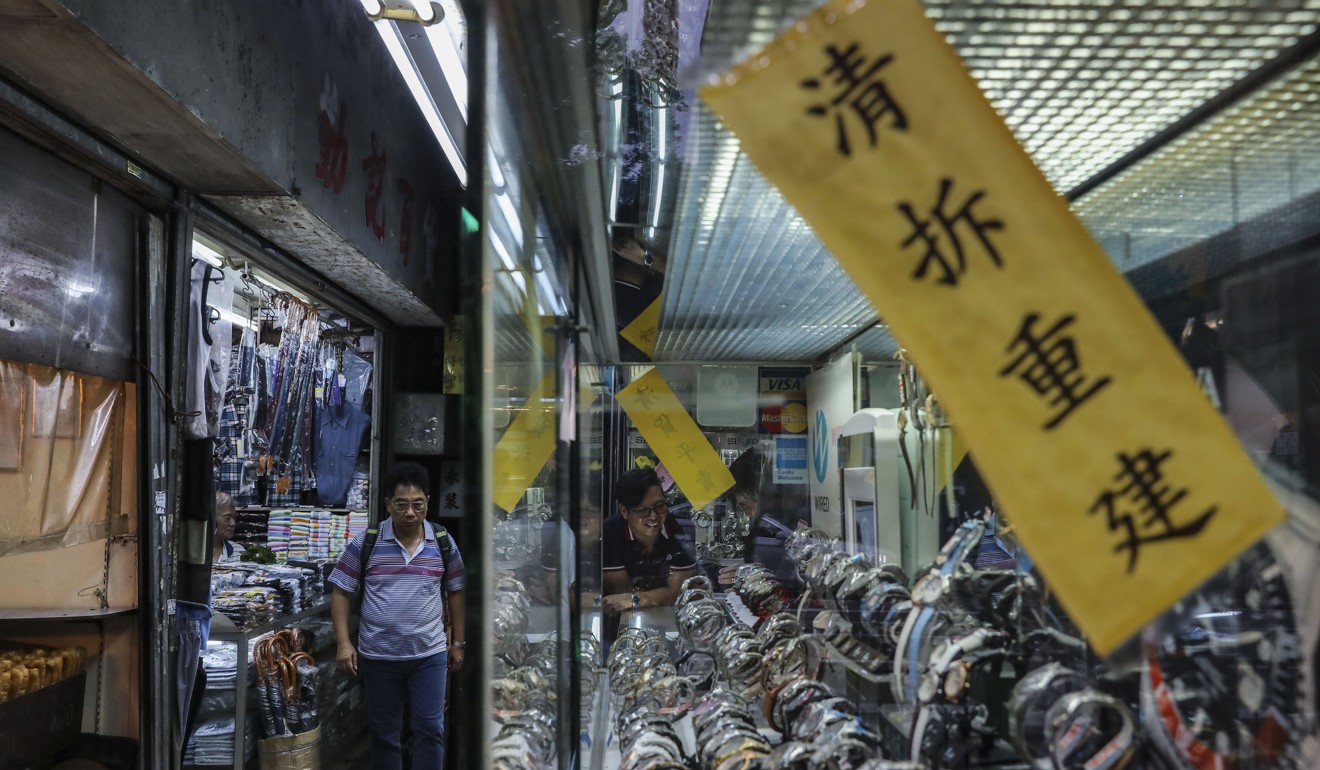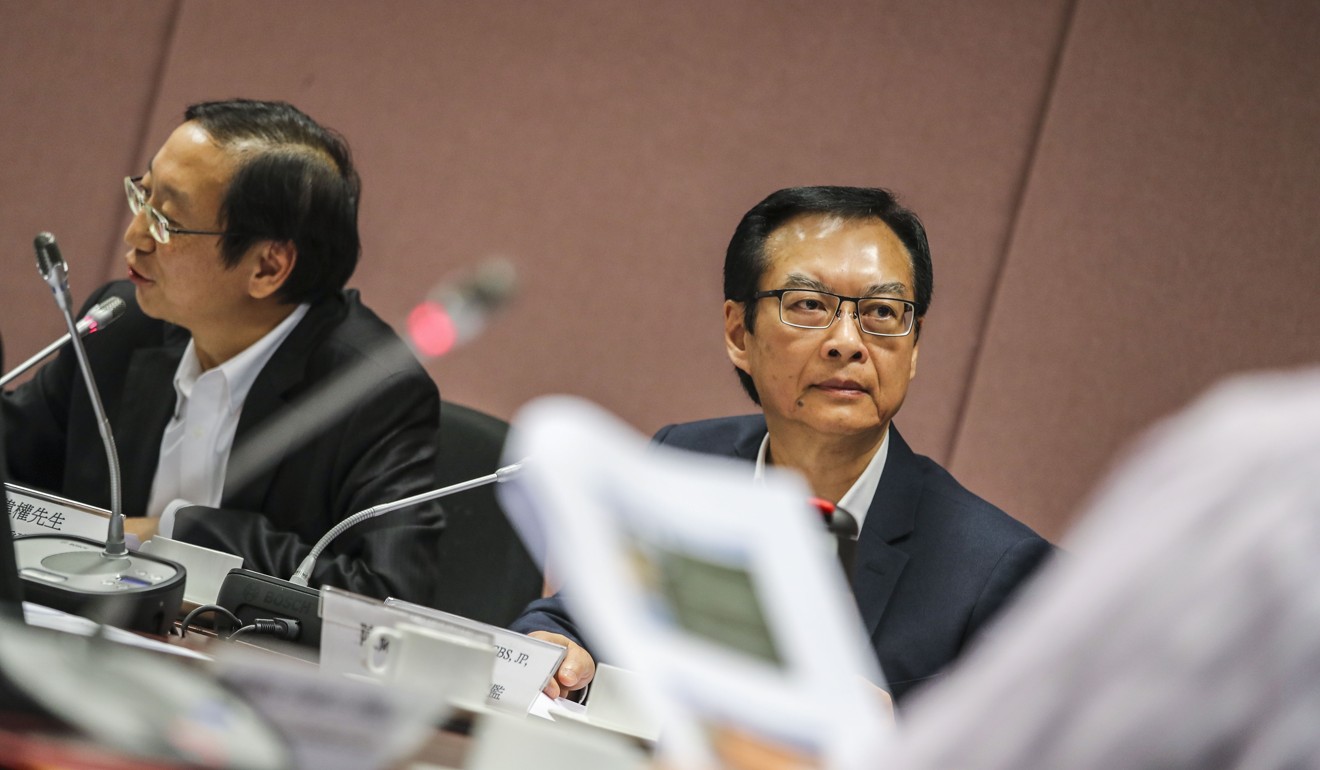
Stall holders hit HK$100 million jackpot as Urban Renewal Authority earmarks cash to move them from site of Hong Kong redevelopment project
One-off compensation planned for businesses that occupied private land in Kwun Tong town centre, where 1,700 flats, and 357,580 sq ft of retail space included in redevelopment project
Hong Kong’s Urban Renewal Authority will shell out HK$100 million (US$12.7 million) to compensate shopkeepers operating 74 unauthorised stalls in a bid to speed up a redevelopment project in the city’s most densely populated district.
The one-off compensation arrangements concern the fifth and final phase of the Kwun Tong town centre redevelopment project, which began in 2007.
Some 110 shopkeepers, tenants and residents illegally occupied either government or private land in the 1960s and 1970s along a building strip near Yue Man Square and Kwun Tong Road.
Lax government enforcement, coupled with a lack of action from the owners of the land, has allowed the occupiers to stay for decades.

Because of such special circumstances, the authority has not been able to adopt the usual compensation policies in handling such cases.
“Although some of these people may have violated building codes or land leases, considering they have contributed to Kwun Tong for so many years, we decided to use a people-oriented approach and offer a reasonable and fair compensation to them,” Wai Chi-sing, the authority’s managing director said after a district council meeting in Kwun Tong on Friday.
“I’m not sure whether it would set a good or bad precedent, but I think it is a fair arrangement to solve the existing long-lasting problem in this area,” Wai said, adding they would have had to pay “far more than” HK$100 million if the shopkeepers were legal owners.
The special deal only applies to 74 stalls that have illegally occupied private land. Those who have occupied public land, or have legal hawker licences, will be handled separately.
Kwun Tong residential site attracts 25 bids despite concerns over infrastructure
The allowance each shopkeeper gets differs based on their location, stall size, occupancy tenure and whether they would accept an offer to relocate to a rebuilt mall in the area in the future.
Those who accept the compensation offer within a certain time period and agree to move out early can receive an “early bird” deal of an extra HK$100,000.
For example, a stall operator who has used a 129 sq ft space for 20 years will be able to get HK$1.65 million in allowance.
If they choose to relocate to the newly developed mall in the area, they will receive HK$150,000 less. They would, however, be able to operate their business in their new store at a concession rental rate, which is equivalent to about half the market price, for three years.

The Kwun Tong redevelopment is the largest project undertaken by the renewal authority, covering an area of more than 5.35 hectares.
The redeveloped site will provide 1,700 flats, 357,580 sq ft of retail space, a two-level public transport interchange for buses, a hawker bazaar and a refuse collecting point.
The final phase of the project is slated for completion in 2026, two years late.
Some shopkeepers said they were “more than happy” to accept the compensation.
Mandy Ma, who bought a 135 sq ft fruit stall with a cockloft for storage in a narrow alleyway more than 20 years ago, would receive around HK$1.6 million, according to a calculation by the Post.
Urban Renewal Authority makes record offer for buildings in Sai Ying Pun
“To be honest, I had only around HK$200,000 to HK$300,000 in mind, so of course this is acceptable,” Ma said.
Ma said she would consider moving to the new mall, but only if the rent was not too expensive.
“I mostly sell fruit at cheap prices to neighbours, if I can’t make a profit, there’s no use for me to continue working,” she said.
Another business owner, Mandy Wong, who operates a 27 sq ft selling socks, said she would be more than happy to leave with HK$770,000.
“Who doesn’t want to leave with almost a million dollars?” said Wong, who bought the space some 25 years ago.
Building cheaper flats in redevelopment plan may cause loss of HK$138 billion
Lawmaker Jonathan Ho Kai-ming, a Kwun Tong district council member, said the new offer was able to meet the various demands of shopkeepers, but stressed the redevelopment plan had to attract new owners, while also taking care of the needs of existing business operators.
“Most of these existing businesses are grass roots with family run stores, they’re not the same as those who are used to operating in big shopping malls,” he said.
Ho said the authority could consider extending the concession rental rate beyond three years, if these operators relocated to the new mall.
“We want to make sure that the grass-roots stores would also be able to operate a business sustainably as well. No one wants to see them being eliminated by chain stores.”

